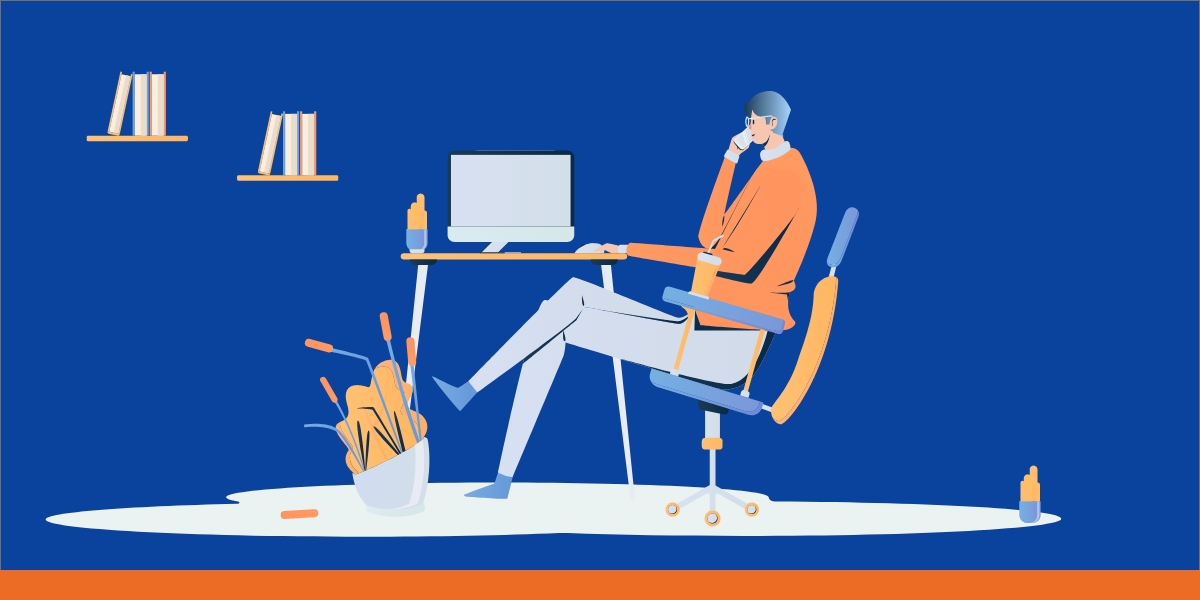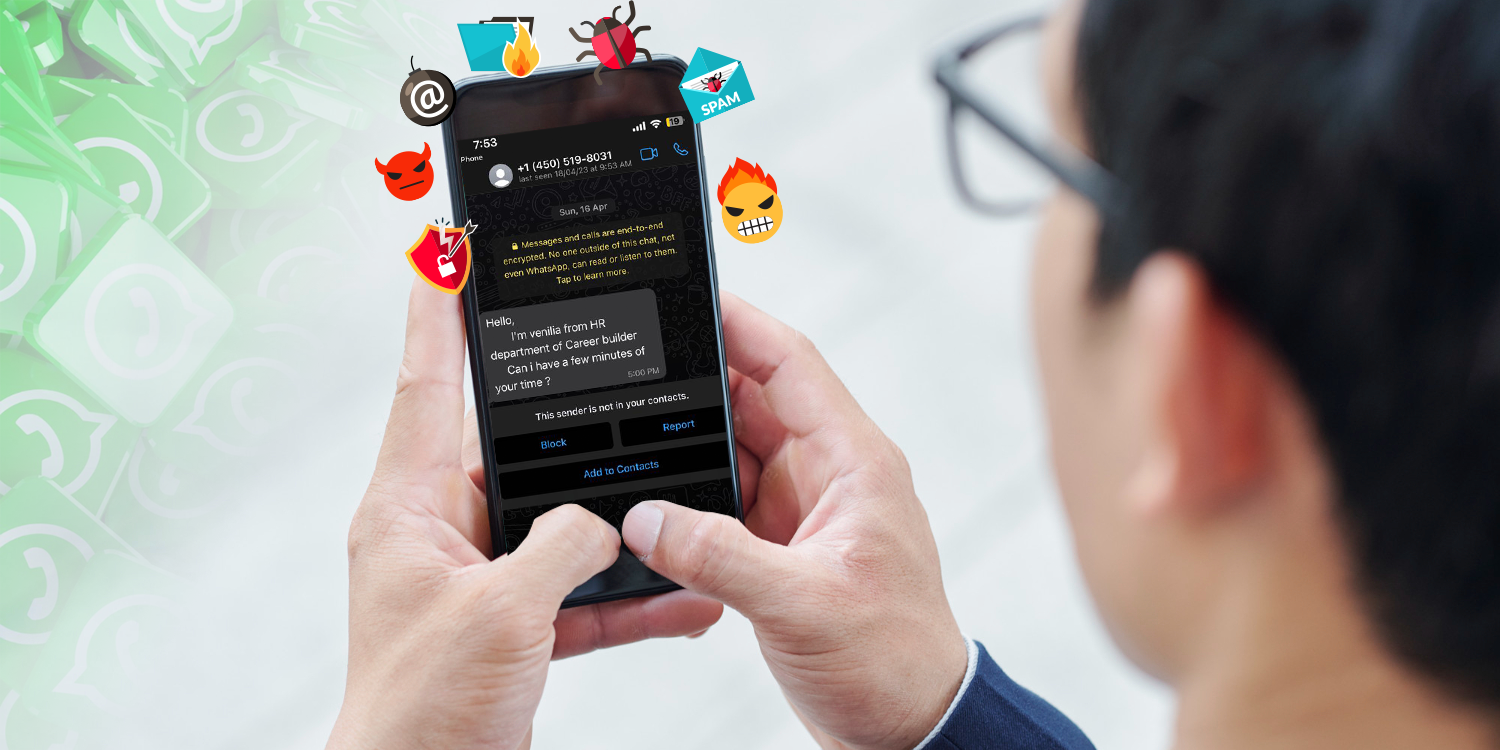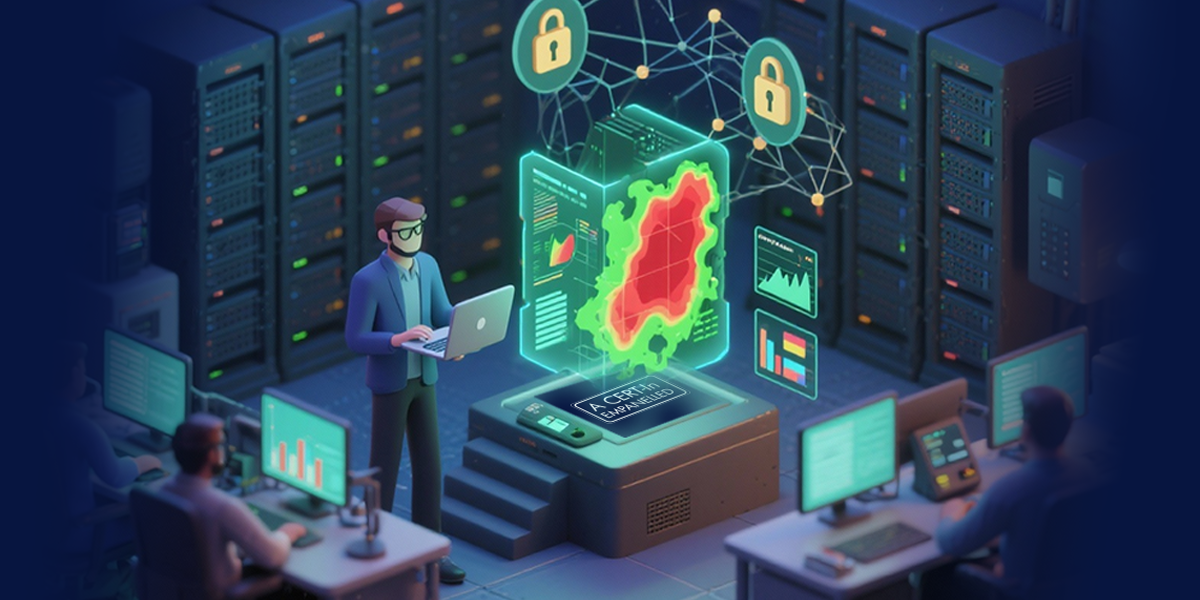‘Going viral’ had lost its original meaning in the 21st century, but it has returned with deadly effect in 2020. COVID-19 is destroying lives, livelihoods, and lifestyles across the world and may well be the biggest crisis the planet has seen since the Second World War.
Pandemics are not unknown in history – we have battled many plagues before – but this is the first time we have experienced such a rapidly spreading illness in the age of the always-connected digital native. Social distancing has become the need of the hour. The good news is that we now have the technology to practise social distancing without disrupting many jobs, by working from home. The bad news is that working from home, away from our hardened corporate networks and well protected devices, may expose us to many cyberthreats.
What Makes Work From Home More Vulnerable To Cyberattacks?
There are 2 ways in which work from home introduces additional vulnerability:
- An employee uses a corporate device, such as a company provided laptop, to carry out work by connecting to a personal network
- An employee uses a personal device, such as their own laptop, to carry out work by connecting to a personal network
In both cases, the employee is utilising personal networks and/or devices to access corporate networks and business data. This increases the attack surface, as personal networks and devices may not be as well protected as enterprise IT assets. The business’s reputation may be ruined if an employee sends an email with an infected attachment to a client, introduces malware into the corporate network by connecting to it through an infected personal device, or if operations are disrupted because critical data is compromised on the employee’s device.
Work from home policies have been implemented for several years now, so these problems are well known. What is different in 2020, thanks to COVID-19, is the scale of the shift to work from home. Millions of employees have begun working from home overnight, creating a goldmine for cyber assailants who can now specifically target a very large pool of business users working without robust corporate cyber defences.
Tips To Stay Safe While Working From Home
There are several steps you can take to protect your device, your data, and your identity:
1. Install all Patches and Updates: Hardware and software OEMs identify vulnerabilities and release patches and updates to fix them. Ensure that all such fixes are installed
- A Step Further – An attack may target a vulnerability that hasn’t been patched yet (called a zero-day attack). Use antivirus that can identify and block unusual behaviour to stop zero-day attacks
2. Be Wary of Email Attachments: Email attachments may carry viruses. Virus scan all attachments before you open them
- A Step Further – Use an antivirus that automatically scans all email attachments before you open them to ensure that all attachments are scanned
3. Use Strong Passwords: A password that can be guessed easily isn’t much of a password. We have a blog devoted to creating strong passwords to help you build safer passwords
- A Step Further – Even strong passwords won’t protect you against keyloggers that record your keystrokes as you type in your passwords. Use a virtual keyboard to prevent keyloggers from stealing your credentials
4. Use USB Storage with Caution: Pen drives, thumb drives, and other forms of USB-enabled external storage are very convenient, but often carry malware. Avoid connecting these to your machine, or scan them for viruses before using them
- A Step Further – Use an antivirus product that can vaccinate USB drives against auto run infections and automatically scan connected drives to stop viruses from slipping through
5. Shut the Door to Hackers: Hackers use sophisticated tools and techniques to find and attack vulnerable devices. Supplement your antivirus with a firewall that will inspect all data flowing in and out of your machine to stop malicious activity
- A Step Further – Use a firewall with built-in Intrusion Detection & Prevention to stop both known and unknown cyberattacks
6. Don’t Fall for Phishing: This tries to trick you into allowing a cyberattack by pretending to be a user or website you trust. Always verify an unusual request with the sender, check if the website is genuine, and follow our guide to avoiding phishing attacks
- A Step Further – Make use of antivirus with phishing protection and malicious website blocking to stay safe
7. Block Ransomware: This is a type of malware that doesn’t steal your data but tries to encrypt it and demands payment for decryption. Read our crisp guide for tips to defeat ransomware
- A Step Further – Install antivirus that is specifically designed to identify and stop malicious encryption
8. Take Frequent Backups – This will save you if you cannot remove a virus from a file, and is particularly effective against ransomware. Just restore an uninfected copy of the file from the backup to defeat the attack
- A Step Further – Simplify the process by using backup tools that make it easy to backup and restore data
9. Update Your Antivirus – A mind-boggling number of viruses emerge every day. Your antivirus is only as good as its last update, so allow it to update frequently
- A Step Further – Choose an antivirus that doesn’t deliver bandwidth-hogging updates. This will allow you to videoconference from home without worrying about antivirus updates disrupting your calls
10. Watch Out for Coronavirus Scams – Cyber crooks are exploiting the curiosity and fear over the coronavirus to lure people by offering news, updates, cures, and other attention grabbers to launch cyberattacks. Educate yourself about these methods by reading our blog on coronavirus-based threats and be safe
- A Step Further –Opt for antivirus that verifies and filters websites to warn you against sites that are known to launch attacks or otherwise show signs of malicious intent
K7 Security offers artificial intelligence enhanced antivirus/cybersecurity products that are very easy to install and use, and can protect you against these, and many other, cyberthreats. Contact Us for any assistance in choosing the right K7 product for your needs.











